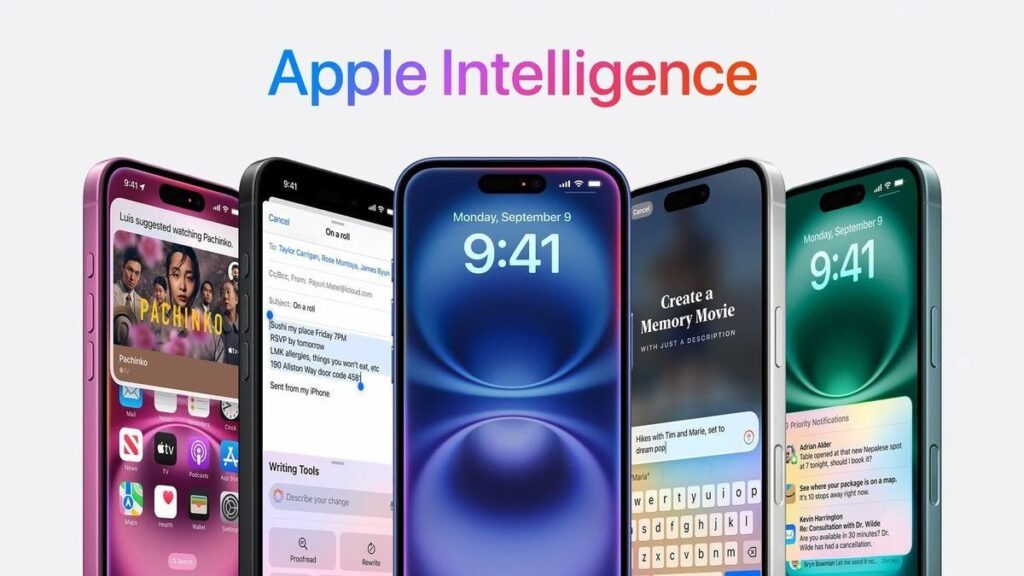Apple ka qenë prej kohësh një forcë dominuese në industrinë teknologjike, duke vendosur trendet në dizajn, harduer dhe inovacion software. Megjithatë, kur bëhet fjalë për inteligjencën artificiale (AI), kompania është gjendur prapa konkurrentëve të saj si Google dhe Amazon. Së fundmi, Apple njoftoi vonesa në lansimin e funksioneve të reja të AI-së për Siri, duke shtyrë afatin për “vitin që vjen”—ndoshta deri në vitin 2026.
Kjo vonesë e papritur ngre shqetësime për aftësinë e Apple për të ndjekur ritmin në një fushë që evoluon me shpejtësi, ku konkurrentët po avancojnë shpejt zgjidhjet e tyre të bazuara në AI.
Çfarë Shkaktoi Vonësën?
Apple kishte planifikuar fillimisht të lansonte përmirësime të mëdha të AI-së për Siri, duke integruar përpunim të avancuar të gjuhës natyrore dhe mësim makinerik, për ta bërë asistentin zanor më intuitiv dhe më të aftë. Përditësimet priteshin të përmirësonin vetëdijen kontekstuale të Siri-së, duke i lejuar asistentit të kuptojë më mirë kërkesat e përdoruesve dhe të përgjigjet në mënyrë më natyrale.
Megjithatë, raportet tregojnë se Apple u përball me sfida të konsiderueshme teknike në integrimin e këtyre funksioneve AI në ekosistemin ekzistues. Ndryshe nga Google, i cili ka integruar pa probleme AI-në e tij Gemini në produkte të ndryshme, dhe Amazon, i cili ka përmirësuar ndjeshëm aftësitë biseduese të Alexa-s, Apple ka pasur vështirësi për të implementuar përparime të krahasueshme në Siri.
Për më tepër, fokusimi i rreptë i Apple tek privatësia dhe përpunimi në pajisje mund të ketë ngadalësuar zhvillimin. Ndryshe nga modelet e AI-së bazuar në cloud që përdorin Google dhe Microsoft, Apple preferon që llogaritjet e AI-së të kryhen drejtpërdrejt në pajisje, për të minimizuar mbledhjen e të dhënave—praktikë që sjell sfida të veçanta inxhinierike.
Peizazhi Konkurrues
Ndërkohë që Apple përballet me vonesa, rivalët e saj po bëjnë hapa të guximshëm në fushën e AI-së:
- Google ka integruar AI-në e fuqishme Gemini në smartphone-t Android, duke përmirësuar aftësitë biseduese të Google Assistant dhe funksionalitetet e kërkimit.
- Amazon ka lansuar një version të rinovuar të Alexa-s, më interaktiv dhe të personalizuar, duke përdorur AI gjeneruese për të përmirësuar përgjigjet.
- OpenAI dhe Microsoft kanë bashkëpunuar për të zgjeruar mundësitë e asistentëve AI, duke integruar ChatGPT në Windows dhe aplikacione të ndryshme enterprise.
Me këto avancime, Apple rrezikon të humbasë terren në garën e AI-së. Përdoruesit gjithnjë e më shumë presin asistentë zanorë inteligjentë që shkojnë përtej komandave bazë dhe ofrojnë ndërveprime kontekstuale dhe në kohë reale.
Çfarë Do të Thotë Për Përdoruesit e Apple
Për përdoruesit e Apple, kjo vonesë do të thotë se do të duhet të presin më gjatë për përvoja më të avancuara të AI-së në pajisjet e tyre. Ndërkohë që iPhone, iPad dhe Mac vazhdojnë të ofrojnë harduer të klasit të parë dhe integrim të rrjedhshëm të ekosistemit, aftësitë e tyre të AI-së mbeten pas konkurrentëve.
Megjithatë, Apple ka pak gjasa të heqë dorë nga ambiciet e saj në AI. Kompania ka investuar shumë në kërkime për AI, përfshirë punësimin e ekspertëve kryesorë të mësimit makinerik dhe blerjen e startup-eve të fokusuar në AI. Thashetheme sugjerojnë se Apple mund të prezantojë një iniciativë të madhe AI në WWDC 2025, ndoshta së bashku me një gjeneratë të re të Apple Silicon të optimizuar për ngarkesa AI.
Vonesa e funksioneve të AI-së nga Apple nxjerr në pah sfidat e balancimit midis inovacionit, privatësisë dhe integrimit të ekosistemit. Ndërkohë që kompania mbetet lider në harduer dhe përvojën e përdoruesit, qasja e kujdesshme ndaj zhvillimit të AI-së e ka vendosur atë në një disavantazh kundrejt Google, Microsoft dhe Amazon.
Pyetja kryesore mbetet: A mund Apple të kapë rivalët, apo do të mbetet pas në revolucionin e AI-së? Përgjigjja do të varet nga aftësia e kompanisë për të kapërcyer këto sfida dhe për të ofruar funksione AI që përputhen ose tejkalojnë konkurrencën.




